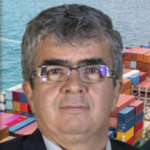
Those in the industry know that in recent years, Brazil has been importing more and more manufactured products, which has contributed to the process of deindustrialization, meaning the scrapping or destruction of the industrial base. After all, if the local industry doesn’t manufacture products at competitive prices or closes its doors, the market is forced to look abroad for what it needs.
Obviously, this loss of competitiveness in national manufacturing is a reflection of the high costs associated with foreign trade operations – more than 30% of export costs are caused by poor road and rail infrastructure and an underdeveloped waterway infrastructure.
For example, if an industry located near the coastline is far from the shipping port, an alternative would be to use cabotage, but the problems in this mode are not minor either. The same applies if an importer needs to transport their product from a national port hub to a port closer to their warehouse. It’s worth noting that long-haul ship fuel is not subject to the State Value Added Tax (ICMS), but bunker fuel for vessels that remain in Brazilian waters is subject to all the tax burden, including ICMS. And this cost has to be added to the final operation cost.
Unfortunately, the situation is likely to worsen because there is no comprehensive plan to integrate the country into the international market. There are only isolated initiatives to promote the “Made in Brazil” brand at some trade shows and exhibitions, often undertaken by associations of exporters from a specific sector, even with the support of the Brazilian Trade and Investment Promotion Agency (Apex-Brasil). This is said because, so far, there is no knowledge of any projects to build offshore platforms capable of receiving ships with a capacity of 22,000 TEUs (twenty-foot equivalent units).
However, major shipping companies, in pursuit of better competitiveness, are building increasingly larger ships and forming international joint ventures that allow the transport of cargo from an increasing number of carriers. Brazil lacks ports prepared to receive these ships, which means it may be excluded from many routes.
Despite all the problems caused by excessive use of road transport – more than 93% of cargo in the state of São Paulo travels by truck – the Port of Santos still offers the best conditions for discharge. However, its navigation channel only supports cargo ships of up to 10,000 TEUs during high tide. Deepening its depth from 15 to 17 meters is a risk to be further evaluated because it could compromise old structures built along the estuary canal and even cause ecological disasters. And even then, it will only be able to receive cargo ships of up to 14,000 TEUs. Continuing to deny offshore departure is going against the world.
Mauro Lourenço Dias, an electronic engineer, is the president of Fiorde Group, which comprises Fiorde Logística Internacional, FTA Transportes e Armazéns Gerais, and Barter Comércio Internacional. Email: fiorde@fiorde.com.br. Website: www.fiorde.com.br.
Return to Blog